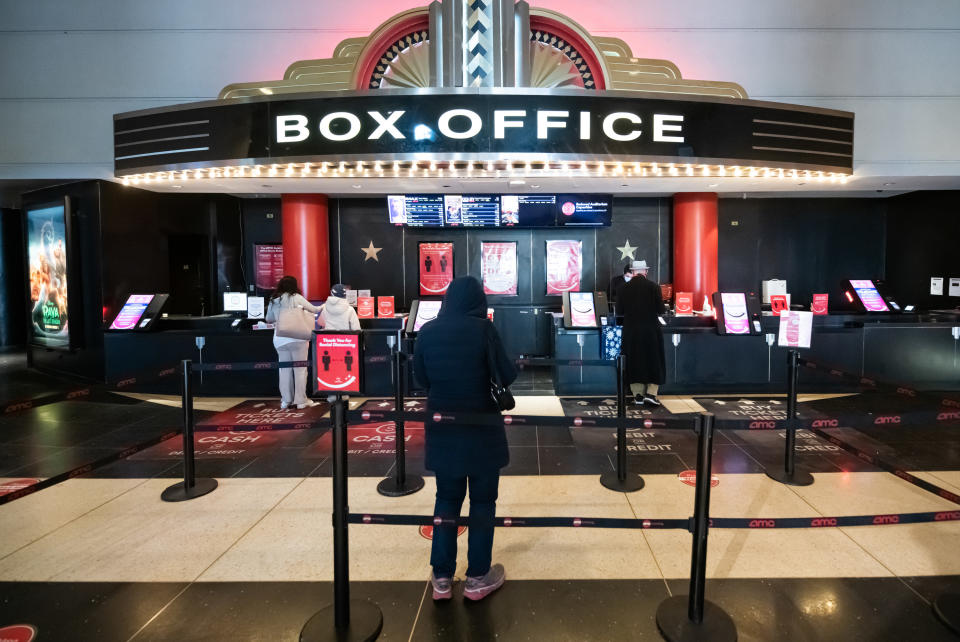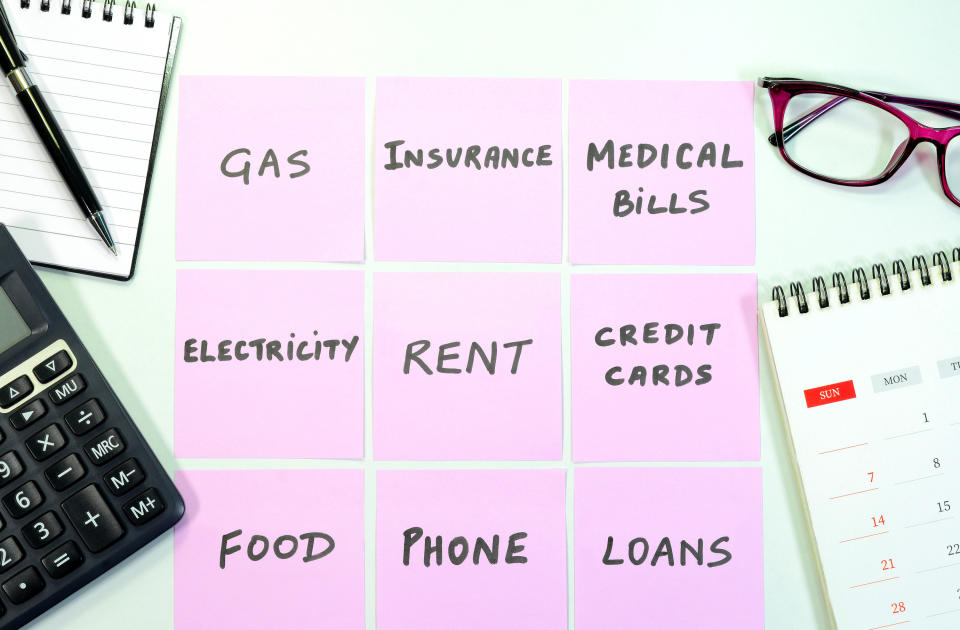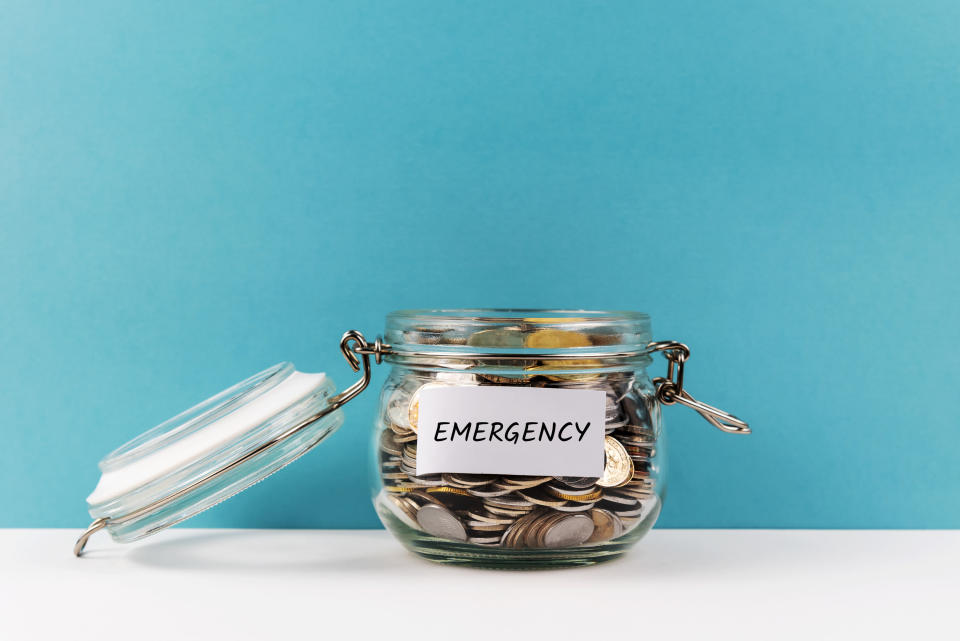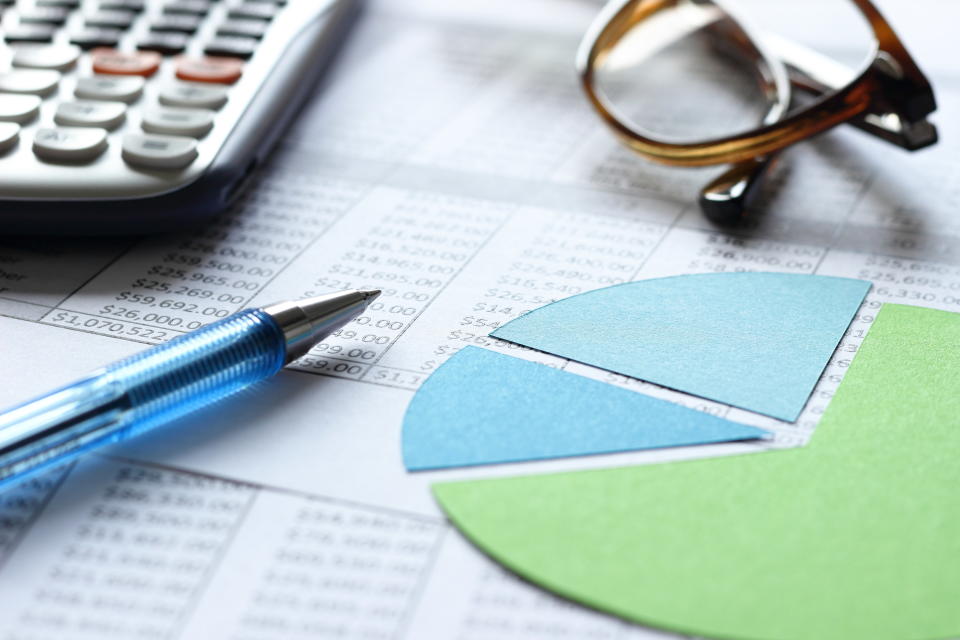A Financial Advisor Helped Me Make A Budget At Age 35, And This Is What I Learned
I'm 35 and have never created a budget. (And I'm a personal finance writer 😬.)
NBC / Via giphy.com
After years of interviewing financial pros, I know that a budget is a cornerstone of financial health, but I've never made one for myself. I just always assumed that as long as I was spending less than what I was making, I was all set.
Turns out that's not the case.
After years of feeling like a fraud, I chatted with Ashley Russo, a wealth management advisor with Northwestern Mutual, who was kind enough to help me create my first budget.
NBC / Via giphy.com
In addition to being super relatable, Russo really, really likes working with numbers. She literally told me: "I love math; I mean, I'm obsessed with it."
As a non-math person, I was sold. And she had no problem whipping my finances into shape in under an hour.
1.Before we did anything, Russo made sure the setting and timing felt right. It turns out that making a budget can be emotional (just wait till you see how I reacted to No. 8).
HBO / Via giphy.com
Money brings up a lot of emotions (like anxiety and even shame), so Russo says you need to create an "honest, judgement-free space." She recommends bringing along a glass (or bottle!) of your favorite wine and putting on some relaxing music. Remember that a budget isn't black and white; it won't determine if you're a success or a failure, smart or stupid.
As Russo so cleverly sums up: "It's impossible to know where you're going if you don't know where you are."
So with that, we dove in to figure out where I happen to be.
2.We used a budget template she had on hand (see below), but Microsoft Office has something similar, and there are a ton of templates online.

Make sure there is an "Other" field in every area of your budget template, as I had a lot of items that didn't fit in the fields provided on the template.
3.Budgets typically calculate your spending and earning in a month, but it may be easier to think of some expenses in terms of weeks or even years. (You can then convert to months for consistency.)

For example, for me it was easier to think about how much I spend on groceries weekly, how much I spend on clothing over the course of three months, and how much I spend on travel in a year.
4.Russo had me start with fixed expenses — things like rent and utilities — which don't usually change from month to month.
Nickelodeon / Via giphy.com
Your fixed expenses are costs that don't fluctuate. Your rent or mortgage, homeowners insurance, car payment, and cellphone bill are all likely fixed expenses.
Also, keep in mind that there may be things like house and car maintenance on your budget template. Ashley suggested that I leave those blank unless they are reoccurring, monthly costs (like if I was big into home improvement projects or constantly souping up my car). Since I'm not into either, she said I could leave it off my budget since any home or car repairs would come out of my emergency fund and not be a monthly budget item.
5.Then we moved on to non-fixed expenses — things like groceries and dining — which aren't always super easy to determine.
NBC / Via Giphy / giphy.com
Non-fixed expenses include everything from groceries and eating out to clothing purchases and travel. As the name implies, these numbers typically fluctuate from month to month. For example, your grocery bill over the holidays is likely much higher than it is in the summer, when you might be eating out with friends more often.
I did A LOT of guessing, which Russo said is totally fine. For an initial budget like this, she says, "This is a gut check, this first pass. It also gives you an idea on what you're not sure about."
6.Things like going to the movies, sporting events, and concerts are also considered non-fixed expenses. But keep in mind that you should only include them in the budget if you do them regularly.

I don't do any of these things regularly, so I ended up leaving them off my budget, but if you're a Phish head or follow a football team, you'd want to include the amount you spend on tickets and associated travel costs monthly.
7.This is where things can get complicated. If you regularly travel to see a band, you'll need to decide where to account for those costs — they could go with the money you spend on concert tickets OR under the travel section.
ABC / Via Giphy / giphy.com
In short, account for everything, but make sure you don't double up and accidentally count the same expense in two categories.
8.Russo noticed some emotion came up for me around clothing purchases (something I totally feel guilty about) and travel (which I spend a lot on).
NBC / Via Giphy / giphy.com
My two sticky areas were clothing purchases and travel. Russo said I showed a visible "guilty" emotional response to the first, even though it turned out that once my quarterly spending estimate was broken down into a monthly cost, it really wasn't a lot of money per month.
Travel on the other hand (which I do a lot of) was super high. I even paused the entire process to question the number I initially came up with, thinking it was too high.
9.If you have no clue how much you spend on certain non-fixed expenses, make a guess for now. Then, try paying for those non-fixed expenses on a separate credit card for a few months to get an idea of your spending habits.

I thought this idea was genius. If you're like me and don't really have a good idea of how much money you spend on something variable like dining or travel, charge those (or all) non-fixed expenses to a single credit credit for the next few months. At the end of the trial period, add up your spending in each area. Oh, and don't forget to pay off your credit card in full each month to avoid paying high interest charges.
Even if you know you'll need to implement the credit card trick, start by just filling out the budget based on what you think you spend in each area. Russo notes that doing this "gives you an idea on what you're not sure about," allowing you to dig in further.
10.There's a section in the budget to account for money you pay toward loans or credit card debt.

One of your fixed expenses may be a student loan you've been working to pay off or credit card debt. (Don't include your car payment or mortgage here, which should fit under your housing and transportation expenses.)
Also, keep in mind that if you pay your credit card off every month in full (and aren't chipping away at a looming balance) you can leave the credit card payment section blank. This field is meant to account for monthly payments you make to get yourself out of debt.
11.Then we moved on to savings.
FOX / Via giphy.com
For me this was a fixed expense because I have an automatic transfer from my checking to my savings account every month, but for some people the amount that goes into savings may fluctuate (making it a non-fixed expense).
Either way, this is a big one and the reason BEHIND the budget. According to Russo, the goal in budgeting is to understand your financial habits so you can start saving money and working toward retirement.
12.Talking about savings opens up an entirely different conversation about money and retirement — a conversation that Russo recommends having with a financial advisor.
CBS / Via giphy.com
To retire one day, you'll need to know how much you spend in a month and how much savings you'll need to cover those costs in retirement. A budget tells you the former, but to determine how much money you should be saving for retirement you'll need to talk to a financial planner who knows how to plug in all the right numbers, ask all the right questions, and take into account things like inflation, taxes, and the market.
This step is key. Russo says that in retirement, "You don't depend on a paycheck to pay for travel or groceries. What you saved after all those years working is how you pay for that. ... It's not just about covering fixed expenses; it's about maintaining the lifestyle you live today." And while blindly putting money in a savings account is great, without a forward-thinking financial plan, "You have no idea if it's going to help you arrive at your destination."
13.But before you get too far down the retirement rabbit hole, Russo says you should make sure you have a three- to six-month emergency fund.

Remember how I didn't include things like home or car maintenance in my budget because they're not things I spend money on regularly? Well, just because they're not in my budget doesn't mean I don't have to pay for those things.
That's where your emergency fund comes in. It is a cushion of money that you can dip into when your car breaks down, you lose your job, or you have unexpected medical expenses.
Ideally, you would have enough in your emergency fund to cover three to six months of living expenses, a monthly number that is determined by your budget. If that seems impossible, start small and keep saving. Once you have a solid emergency fund in place, you can start thinking about saving for retirement.
14.And finally, at the end of your budget, add a line item for $100 to $150 to cover anything you missed or underestimated.
CBS / Via Giphy / giphy.com
Chances are you're going to forget something, so Russo recommends adding an additional $100–$150 to your monthly budget to cover costs you forgot or things like random coffee runs.
15.Then, add in your net monthly income to see how the flow of money IN compares to the flow of money OUT.
NBC / Via giphy.com
Aka, the big reveal. 🤢
16.The idea is to keep your monthly expenses (including savings) equal to your monthly income. If you have a surplus or a shortage, you'll need to recalibrate things.

I was relieved to see that I'm somehow fortunate enough to have an extra $222 floating around every month (!!!), but Russo warned, "Every dollar should have a home or a purpose, because if they're just floating, they'll be spent."
She suggested putting that money toward savings — or, if you don't have a solid emergency fund in place, routing that money there.
If your monthly income was lower than your monthly expenses, look back at areas where you spend a lot (or places with some wiggle room) and see if you can adjust your spending habits over the next few months.
17.Your end goal should be to cover all your necessary expenses and either be saving toward an emergency fund or retirement. If there's anything left after that, it doesn't matter what you spend it on.
FX / Via Giphy / giphy.com
Like I said, I had a ton of guilt around the amount of money I spend on travel every year, but Russo assured me that "It does not matter if you're spending all your money on travel or clothes or following your favorite band across the country, as long as you have paid yourself the right amount so that you can be free of a paycheck one day."
In short, as long as you're covering all your necessities, have an emergency fund, and are saving for your future, if there's anything left over, you can spend it however you want.
18.But with that being said, you also need to consider any long-term goals you want to work toward. For example, if I wanted to buy a house in a few years, Russo said I may need to cut my travel budget (and other areas).

Creating a budget brings clarity to what areas of your life suck up a lot of money. This is helpful because if you have a long-term goal to go to grad school, buy a house, or quit your job to travel, you'll be able to see where you can make adjustments to pay for those goals.
Russo explained that while my travel-heavy lifestyle works for now, if I wanted to save money for a big purchase (like a house), I would need to funnel some of that travel money elsewhere.
19.Once you've created an initial budget, check in with it in three months. Then, make plans to update it every year.
Morgan Creek Productions / Via Giphy / giphy.com
You'll especially want to do the three-month check-in if you had a few non-fixed expenses you weren't sure about. In three months — if you did the separate credit card trick in No. 9 — you should have a clear idea of what you spend per month on those tricky non-fixed expenses on average.
"Having a budget check-in every three months is a good idea when you're solidifying it, and then updating it every year," said Russo.
Even thought it was emotional at times, creating a budget felt good — like checking something off a dusty to-do list. It also made me realize that I need to start thinking seriously about retirement.
MTV / Via Giphy / giphy.com
While the budget made me feel fairly solid financially, it made me realize that just putting an obscure amount of money into an IRA each month might not be enough. I need to talk to a financial planner who can help me figure out how much money I need to contribute each month in order to retire when the time comes.
But I'll save that for another article...
How do you feel about budgeting? Tell us about it in the comments.
And for more stories about life and money, check out the rest of our personal finance posts.

